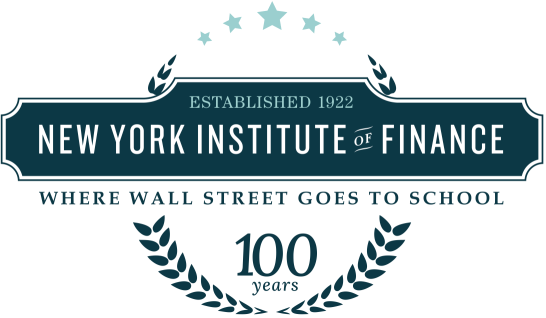Develop a comprehensive survey of the practice of Risk Management. The major types of risk are identified, risk management tools and techniques are reviewed and financial regulation is covered.

Develop a comprehensive survey of the practice of Risk Management. The major types of risk are identified, risk management tools and techniques are reviewed and financial regulation is covered.
Delegates will work through the annual risk report of a publicly traded financial institution. A number of case studies are analyzed to illustrate key principles of risk measurement and management.
What You'll Learn:
The New York Institute of Finance (NYIF) was founded by the New York Stock Exchange (NYSE) in 1922 as the New York Stock Exchange Institute. In 1924, 205 NYSE employees graduated from the Institute.
The following year, the Institute introduced the “Mock Market”, a trading simulation conducted on the floor of the Exchange, after trading hours. The simulation became an integral part of the one-year training program for new employees. By 1930 courses of the Institute were extended to employees of member firms of the Exchange.
The first record of the new name for the Institute, “The New York Institute of Finance,” appears in the minutes of the NYSE Board of Governors meeting, October 8, 1942.
Prentice-Hall acquired NYIF from NYSE in 1960. Via an acquisition of Prentice-Hall by Pearson PLC, ownership of NYIF moved to Pearson PLC. In 2008 the Institute opened its Beijing office. In 2013 ownership of the Institute was transferred to a Pearson company, the Financial Times Group (FT). A consortium of companies purchased NYIF from the FT in July 2017.
Today NYIF is an independently held business, headquartered in New York, providing world-class training to professionals in the financial services and related industries. The Institute offers a vast array of courses ranging from introductory to advanced, as well as a number of professional designations that build careers through expertise.
Each year the Institute delivers training to more than 50,000 individuals in over 125 countries. Some of the world’s leading financial institutions, central banks and regulatory bodies are clients of the Institute.
© 2025 coursetakers.com All Rights Reserved. Terms and Conditions of use | Privacy Policy